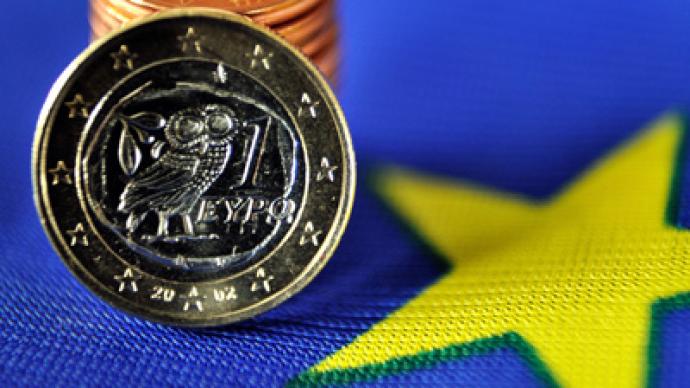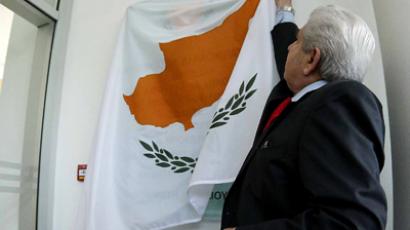Are you on the ‘SS Euro’? Abandon Ship!

The Euro is creaking and making funny noises. Lloyds of London – who have a pretty good ear to perceive impending disasters – says the insurance market is preparing for the Euro's collapse and is trying to reduce its exposure as much as possible.
Robert Ward chief executive of the multi-billion dollar and almost five hundred year old institution said Lloyd's may have to write-down on its £58.9 billion investment portfolio if the euro collapses. In the interview for The Sunday Telegraph he explained the market has put in place a contingency plan to switch euro underwriting to multi-currency claims settlementsIt seems Lloyds believes ‘grexit’ is looking more and more likely day by day. Insurers are a good reference point on this, since risk management lies at the very heart of insurance and reinsurance. London as well as Germany are two of the key global long-term risk management markets, counting on extensive expertise and experience in such potentially catastrophic financial upheavals.Another major insurer providing credit insurance for Eurozone trade – the Franco-German Euler Hermes Group – has also stated is would be reducing coverage for trade with Greece. Clearly, a tell-tale sign that a country is about to go bust is when credit insurance providers decide to stop trading with it.Also going into Orange Alert Mode are the German mega-bankers. Last weekend Juergen Fitschen, co-chief executive of Deutsche Bank, described Greece as a "failed state" run by corrupt politicians adding that even though he did not think that if Greece exits the euro that would immediately lead to the collapse of the eurozone, he was nevertheless jittery about the whole matter adding that “what we need to do is prepare for that eventuality."Correct, Juergen! If Greece goes, then the temptation for Portugal, Ireland, Spain, Italy and others to follow suit would indeed be great. And maybe we should not just be focusing on the weak end of the Eurozone – Greece, Portugal, Spain, Italy – but should also turn an eye on its strong end: because even you Germans might – for very different reasons – end up realizing that you too would be far better off dumping the euro and going back to the proverbially strong Deutsch Mark.Then, Germany would have no need to bail-out and rough up “Today Greece, tomorrow Europe!”. As German interior minister Hans-Peter Friedrich just told the Leipziger Volkszeitung newspaper, Germany was prepared to help rescue Greece but only if it helps itself and honours its agreements, adding that “We're not willing to pour money into a bottomless pit".Come on, Germany! Look at history and start understanding that you’d be far better off looking eastwards, reaching intelligent agreements with raw-materials-rich Russian, than with just dragging as dead-weight “Old Europe” and its increasingly decadent and misgoverned American controllers.Even quiet, conservative and bourgeois Switzerland had its Central Bank Governor Thomas Jordan also admitting that they too were drawing up contingency action plans in the event of the euro's collapse…On May 25th, writing in the London Telegraph, conservative political columnist Bruce Anderson observed that European Union ideologues – “those wise men” as he calls them – made a double mistake: they both “underestimated and overestimated their fellow humans”, because although globalization and global competition was nice …for a while… “en-masse, human beings need the nation-state, just as individual humans need dwellings.” Comparing the EU to life in a great city, Anderson explains that “there are moments when most people want to close their front door and relax at home. It helps to cope with all that pressure if you can live in a nation state, where you speak the language, understand the politics, respect the legal system,” I would add, “where you can issue and control your own currency…” It seems that those “wise men” of old and their modern Eurocrat counterparts in Brussels, Strasbourg and Frankfurt have been trying to run Europe having “a French jockey on a German horse”: two delusions that eventually led to the single-currency. It’s important to listen to what the British have to say about today’s euro-crisis because a decade ago, they very intelligently accepted the European Union but rejected the single currency. And they were right!!As Anderson aptly points out, “you cannot use the same interest rate in Dublin and Düsseldorf unless there are fiscal transfers. Monetary union must mean fiscal union. On the basis of no taxation without representation, this must lead on to political union. Instead, the eurozone leaders told the architect to build the roof first…. ”The result is today’s unsustainable continent-wide crisis: rising unemployment, top-heavy pension systems, extreme hardship for the young and the poor, which is leading to increasing social disorder, constant emigration from Greece, Spain and Italy that presses into northern Europe…Europe today stands at a cross-roads: in the coming weeks and months it may be living its “To be or not to be” moment. It has been the European Union bureaucrats allied to the global banking mafia that led Europe to its present woes, so, Europe: don’t look to them for “transnational” crisis leadership and “global solutions”. They won’t deliver!!Rather, seek common sense solutions at home, review recent / not so recent history; use your imagination more and your imaginary fears less.Perhaps, the ultimate litmus test on this runs something like this: The more angry and furious Greece, Portugal, Spain, Ireland, Italy make the global private mega-bankers – and the IMF, ECB, Fed, and global rating agencies – the more certain you can be that you’re on the right track.Woe to Greece, woe to Spain, Italy and others if the day dawns when these mega-bankers applaud you saying they’re “satisfied that you are doing the right thing”. That will undoubtedly mean you’ve put the noose around your own necks. For the love of God, don’t do that!
Adrian Salbuchi for RT
Adrian Salbuchi is a political analyst, author, speaker and radio/TV commentator in Argentina. www.asalbuchi.com.ar
Disclaimer: The views and opinions expressed in the story are solely those of the author and do not necessarily represent those of RT.














